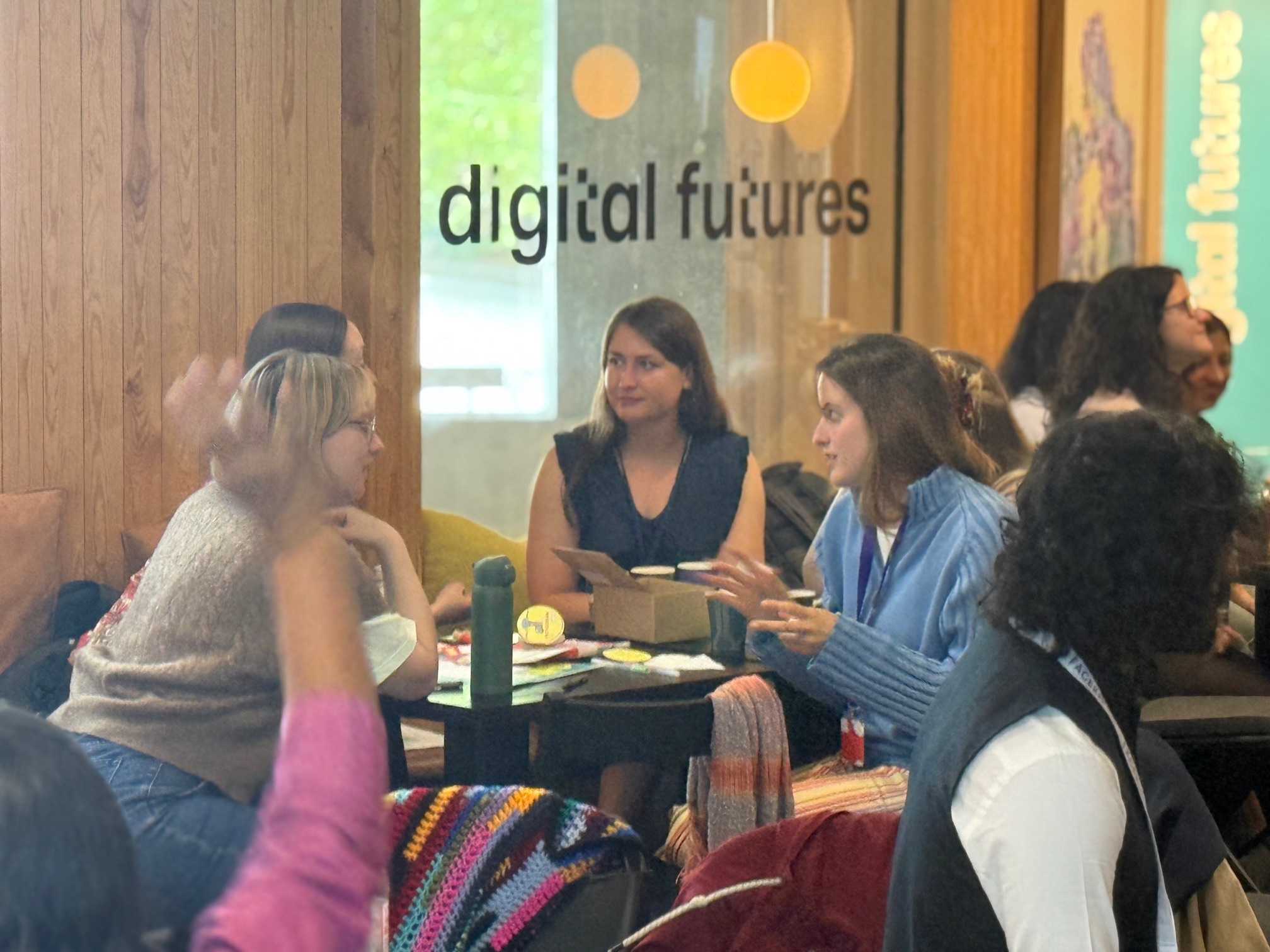In May and early June 2025, the five-week Digital Futures FemTech and Feminist Tech focus period unfolded at Digital Futures in Stockholm, offering an expansive and critical exploration of what digitalisation might look like if designed centered on feminist values – a perspective that embraces care, difference, and social responsibility at its core. This initiative gathered a vibrant, diverse and excellent group of over 60 researchers, practitioners, and artists to challenge assumptions embedded in the design of digital systems, with a central aim to interrogate how gendered perspectives—and feminist and intersectional frameworks—can generate not only fairer but also more innovative and inclusive technologies.
“The FemTech and Feminist Tech focus period marked an important moment for both academic inquiry and public engagement. By centering feminist methodologies and lived experience, the event series offered not just critique but tangible alternatives to dominant technology paradigms,” says Madeline Balaam, Professor in Interaction Design at KTH Royal Institute of Technology.
“We wanted to provide a place to think generatively with one another and a place where we could collectively hope for and work toward a better future with digital technologies. By working with a mix of formats from seminars and panel discussions to hands-on crafting and an exhibition, we were able to open up new kinds of discussions and build strong collaborative networks” adds Airi Lampinen, Associate Professor at Stockholm University.
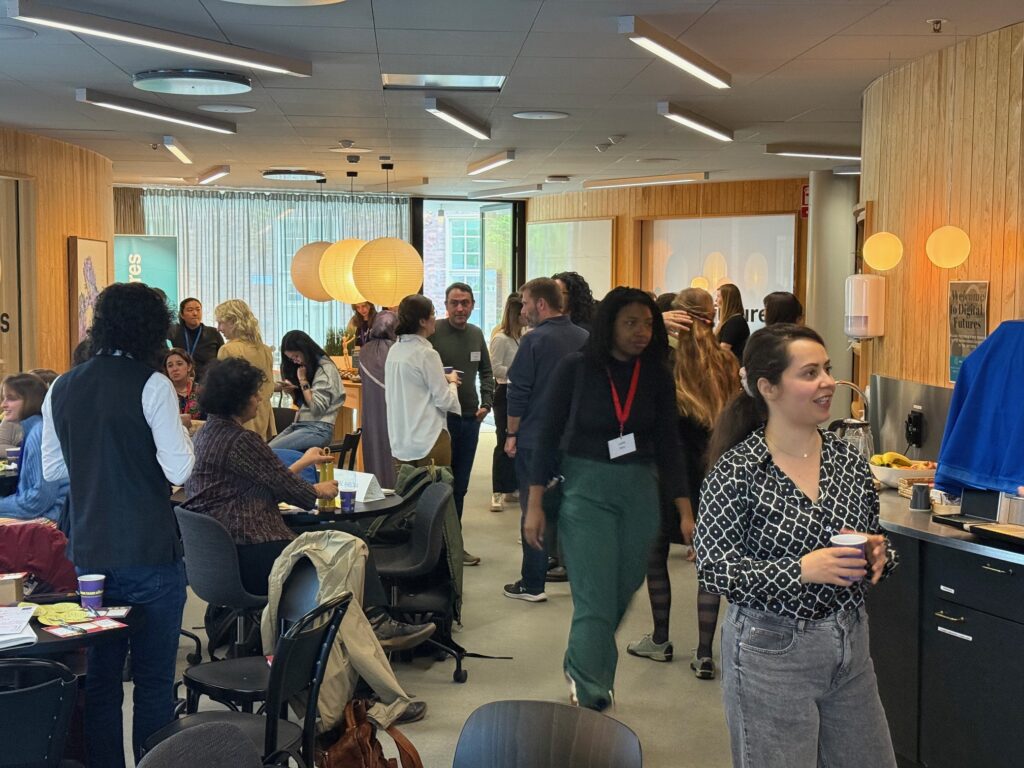
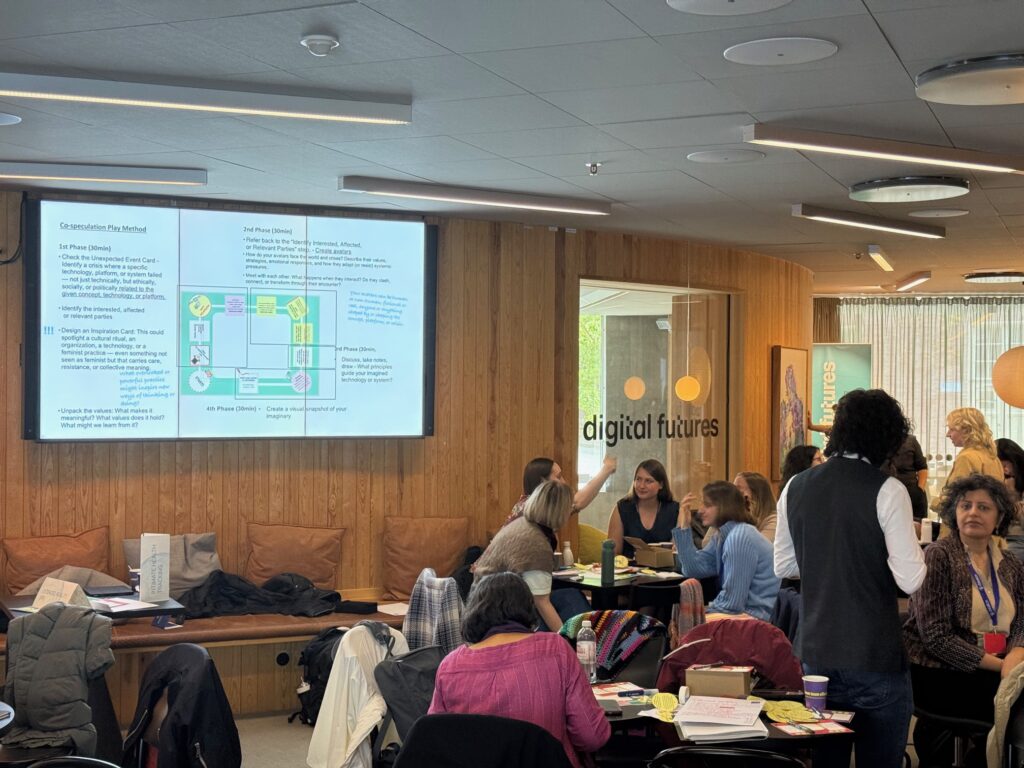
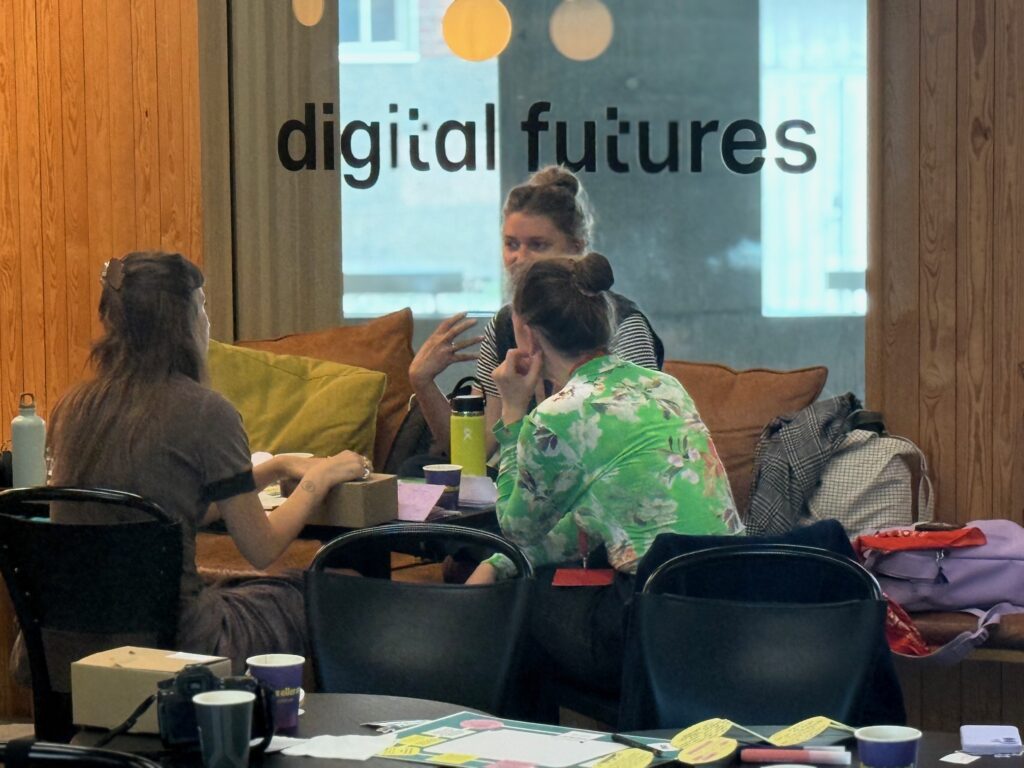
Inspired by Schiebinger and Schraudner’s (2011) idea of “fixing the knowledge,” the focus period took deliberate steps to address systemic exclusions in engineering, design, and AI. From historical oversight in platforms like AppleHealth, which famously launched without a menstrual tracker, to critical concerns around algorithmic bias and bodily safety, the event emphasized how many technological systems are still built around the male body as the default (Criado Pérez, 2019). The Digital Futures focus period sought to shift this paradigm by addressing topics like critical feminist perspectives to AI as well as security, privacy and online information related to FemTech and reproductive health.
The Core: A 3-Day Workshop
The centerpiece of the focus period was the three-day, invitation-only workshop held from May 26–28, structured around keynote lectures, collaborative panel discussions, and interactive participant-led breakout sessions. Day One opened with speculative exercises on building feminist utopias, followed by a keynote from Ivana Feldfeber on the AymurAI project, which applies feminist AI practices in Latin America. Subsequent days included panels on open-source FemTech, critical AI, ethical research in intimate settings, and community-led approaches to digital safety. The keynote on Day Two was given by Emily Tseng on Participation, Trauma, and Privacy in Studying Digital Safety. The workshop also featured parallel sessions on, amongst others, feminist sketching methods, researcher care when working with sensitive topics, and the impact of surveillance on menopausal technologies. The event concluded with a keynote by Neha Kumar on post-growth and feminist technology, emphasizing a shift from extractive to relational design paradigms.
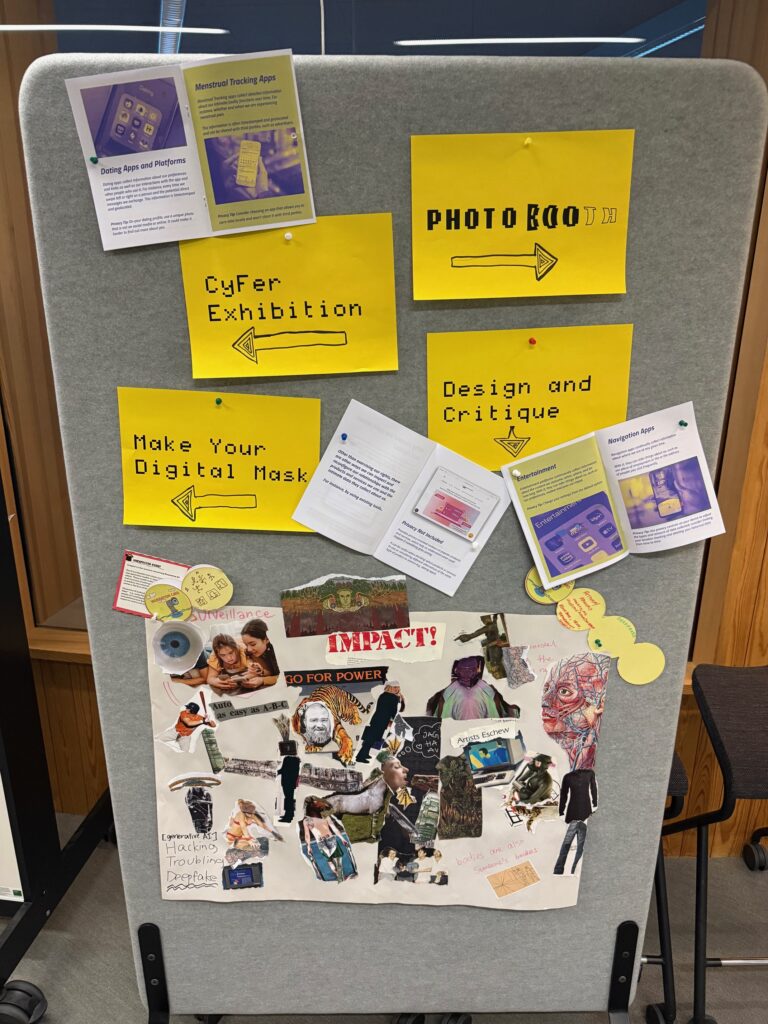
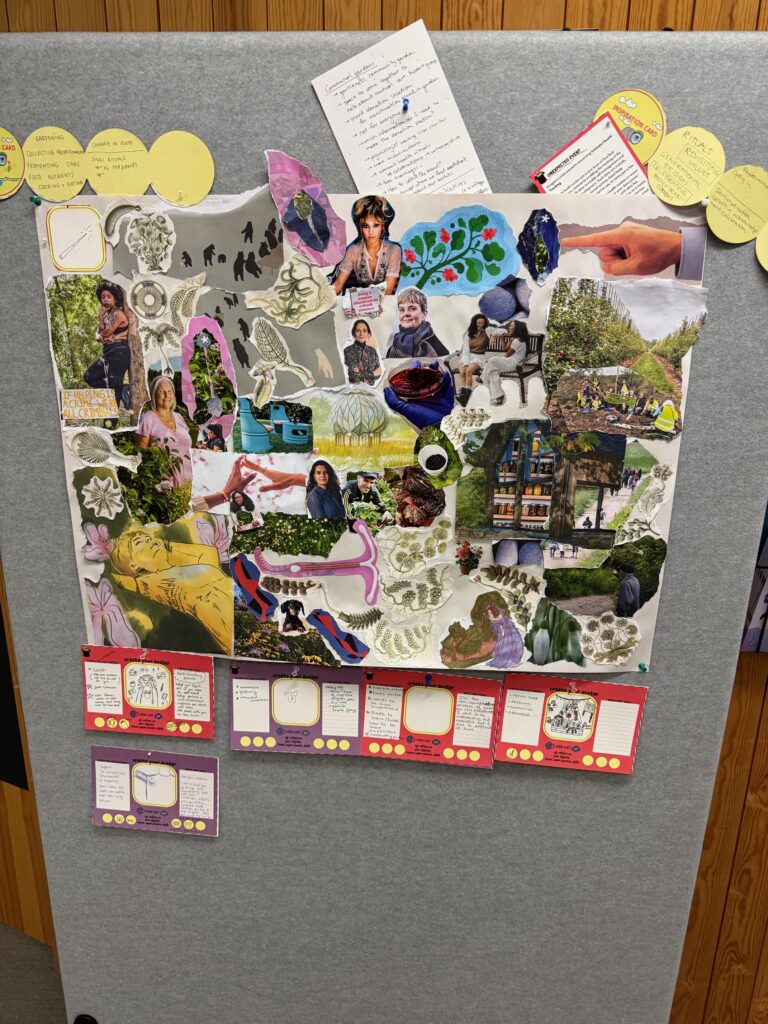
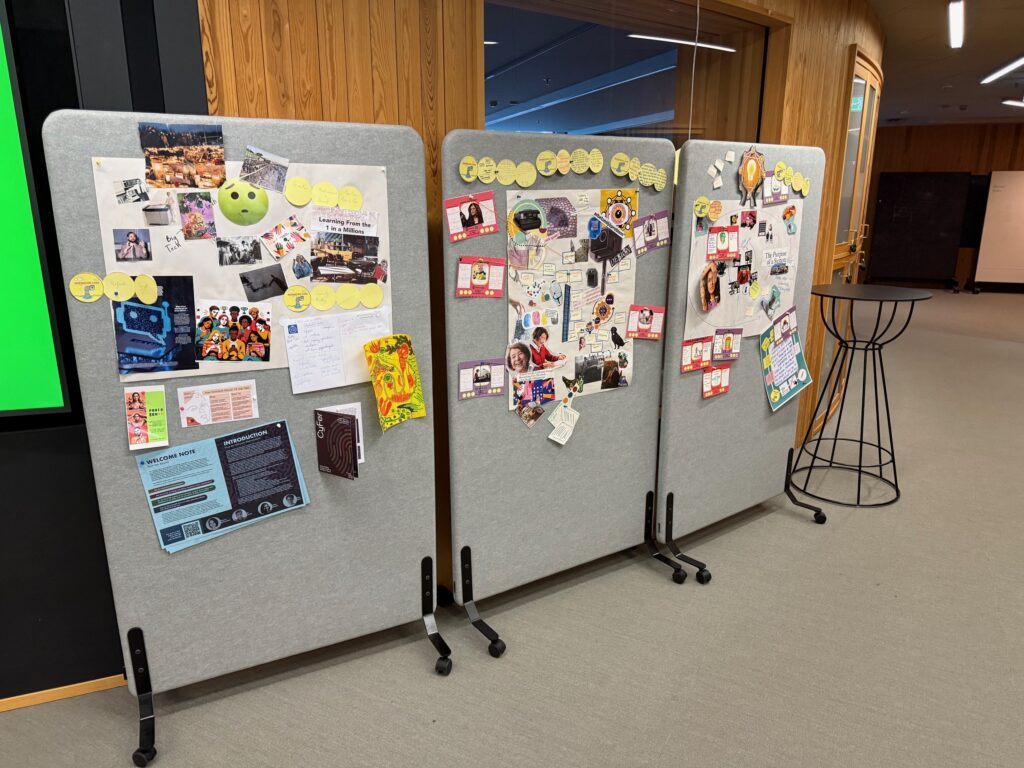
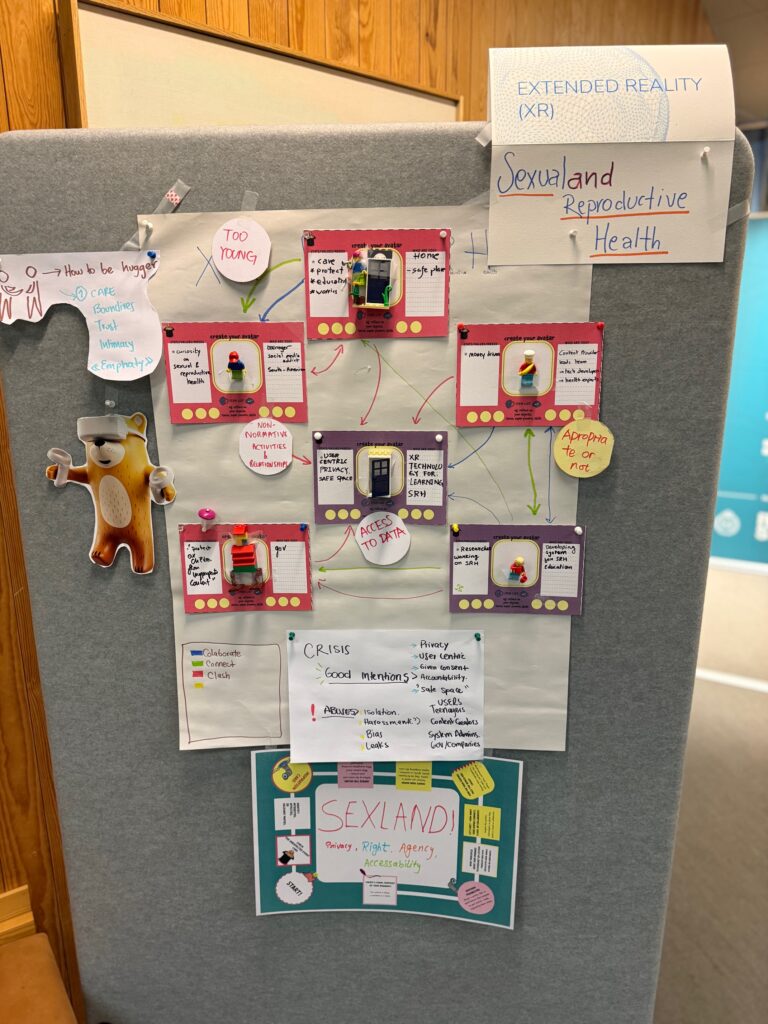
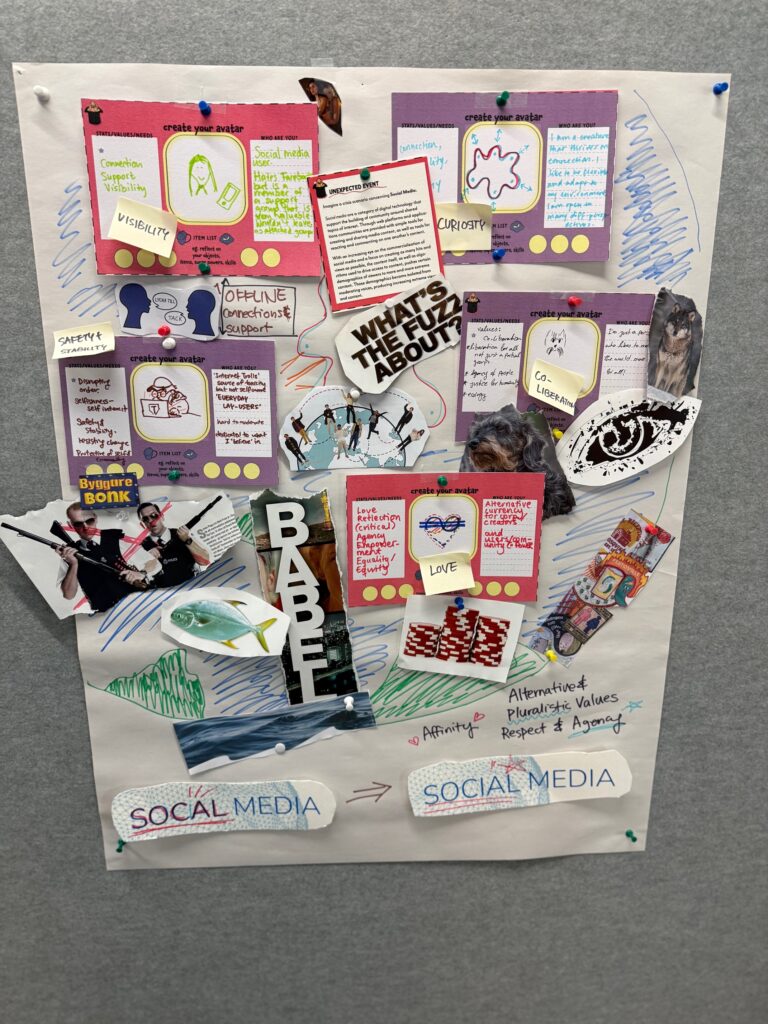
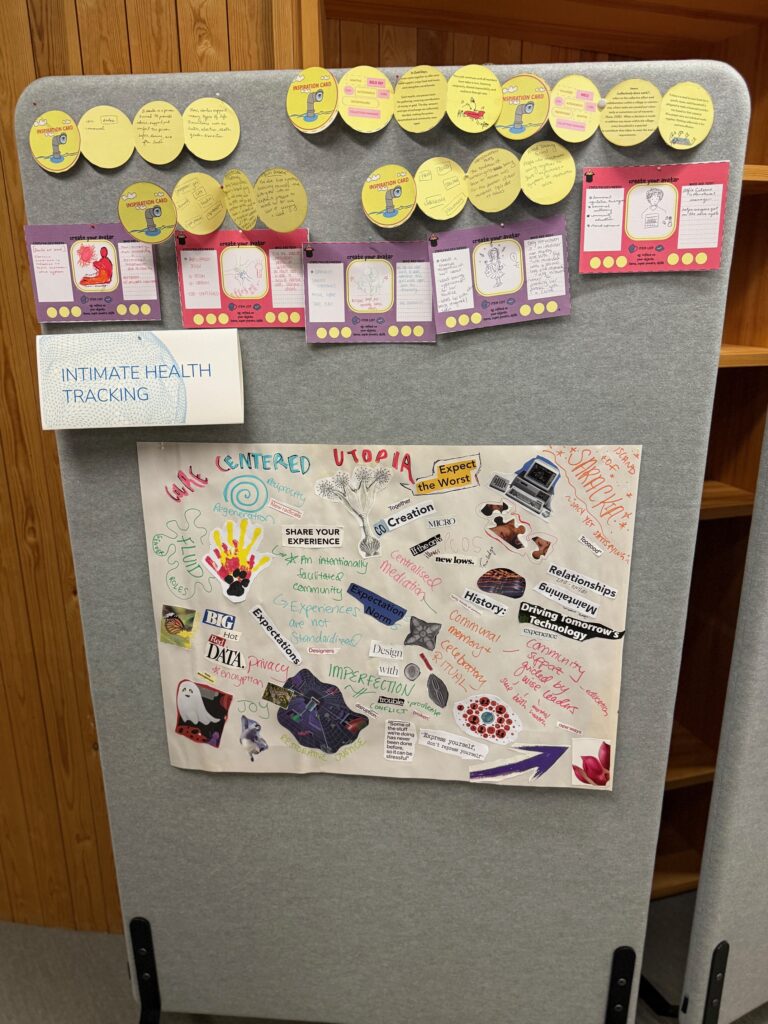
Intimate Data and Menstrual Activism
Among unique standout events of the focus period was the Intimate Data Party (May 26), a hands-on evening, orchestrated by Alejandra Gómez Ortega and Nicolas Harrand, where participants explored personal data histories and cybersecurity, interrogating how bodies, identities, and private information are recorded, surveilled, and commodified. On May 30, Lakshmi Murthy led a hands-on session titled Thread by Thread, where participants hand-stitched reusable cloth sanitary pads, connecting ecological practice with menstrual health and autonomy.
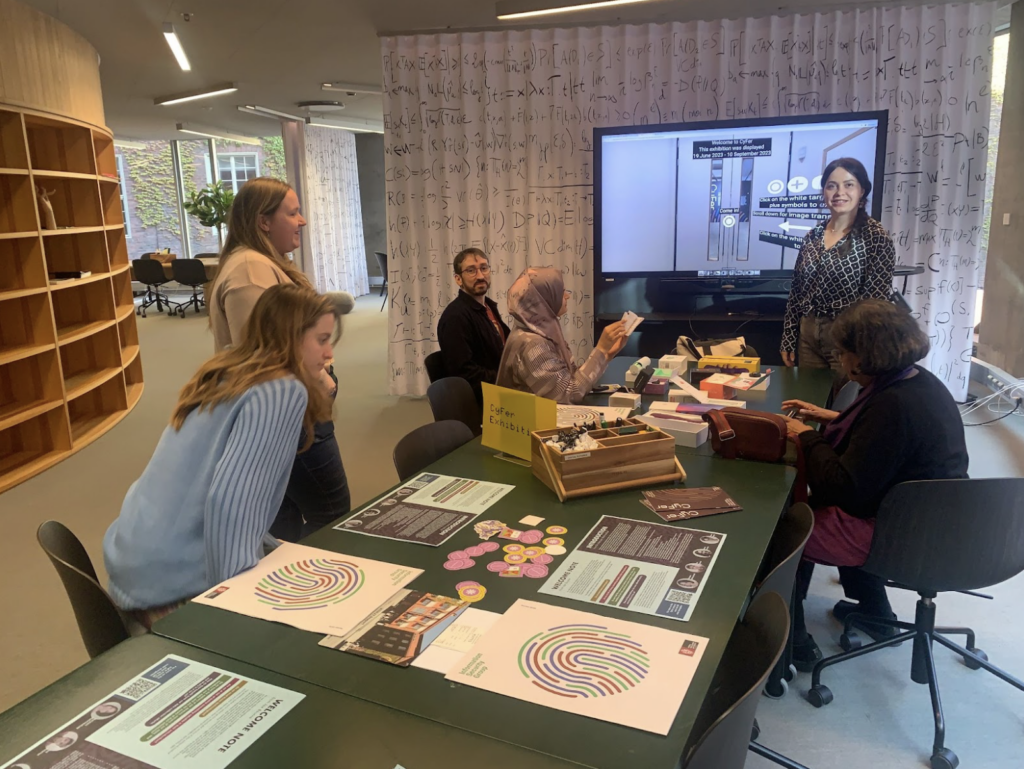
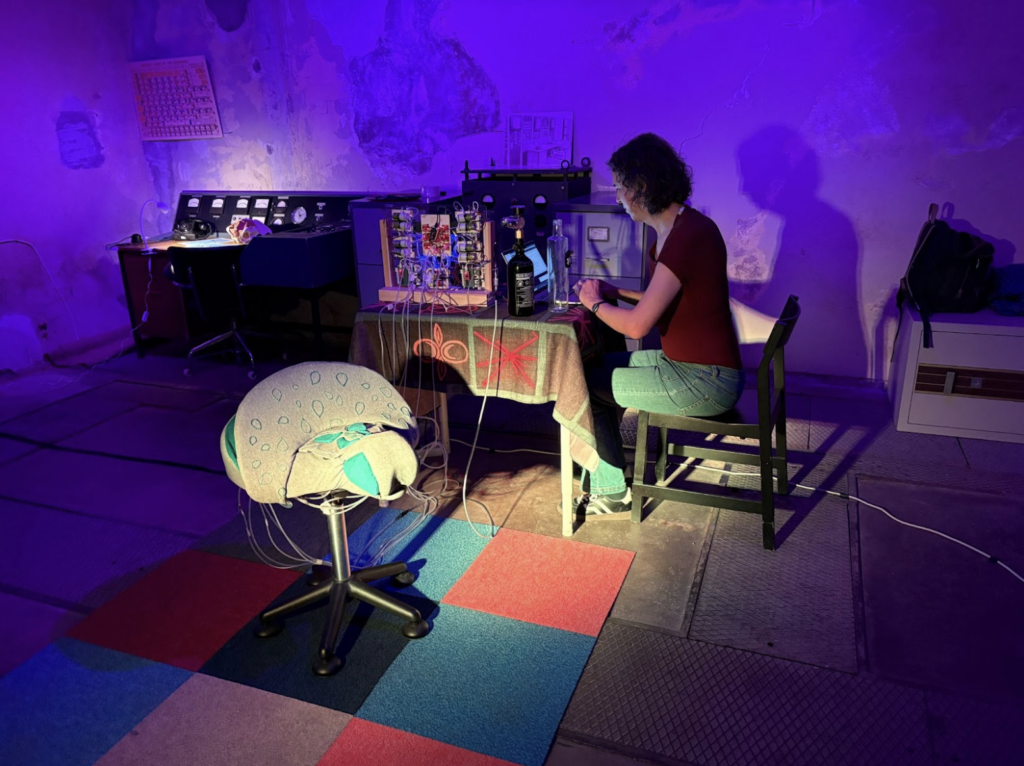
Public Seminars and Exhibition
A series of public seminars ran throughout the focus period. Topics ranged from microbiome research and AI-driven justice systems to digital trauma, menstrual equity, and disability in algorithmic systems. Next to the keynotes at the main workshop, speakers included Ina Schuppe Koistinen, Lakshmi Murthy, and Laura Forlano. As a highlight of the focus period, on June 4, the FemTech + Feminist Tech Exhibition transformed the historic KTH Reactor Hall into a multisensory space for interdisciplinary artworks. Curated by Nadia Campo Woytuk, the exhibits engaged with topics like menstrual care, fertility tracking, synthetic voice, and embodied data ethics. The evening included participatory workshops, live performances, and a DJ set, inviting the public to reflect and connect through feminist perspectives on digital life.
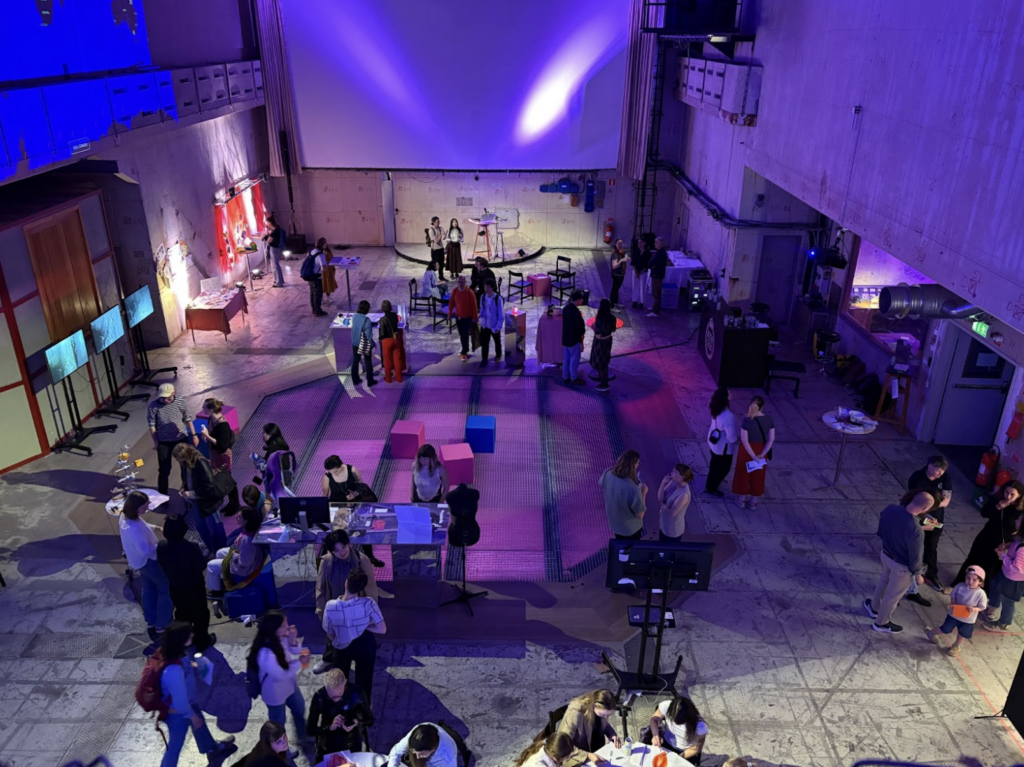
PhD Summer School
Preceding the workshop, a PhD summer school on May 22–23 brought together emerging scholars for an intensive two-day course, combining theoretical study with practical exploration across four key themes: power, invisible labor, binaries in tech design, and feminist activism. Attendees also participated in the main workshop, fostering deeper academic engagement. Many of the visiting early-career scholars stayed in Stockholm for a bigger part of the focus period, allowing for one of the core intended impacts of the focus period: establishing research collaborations with Stockholm-based colleagues and fostering peer support and mentorship networks that span across continents.
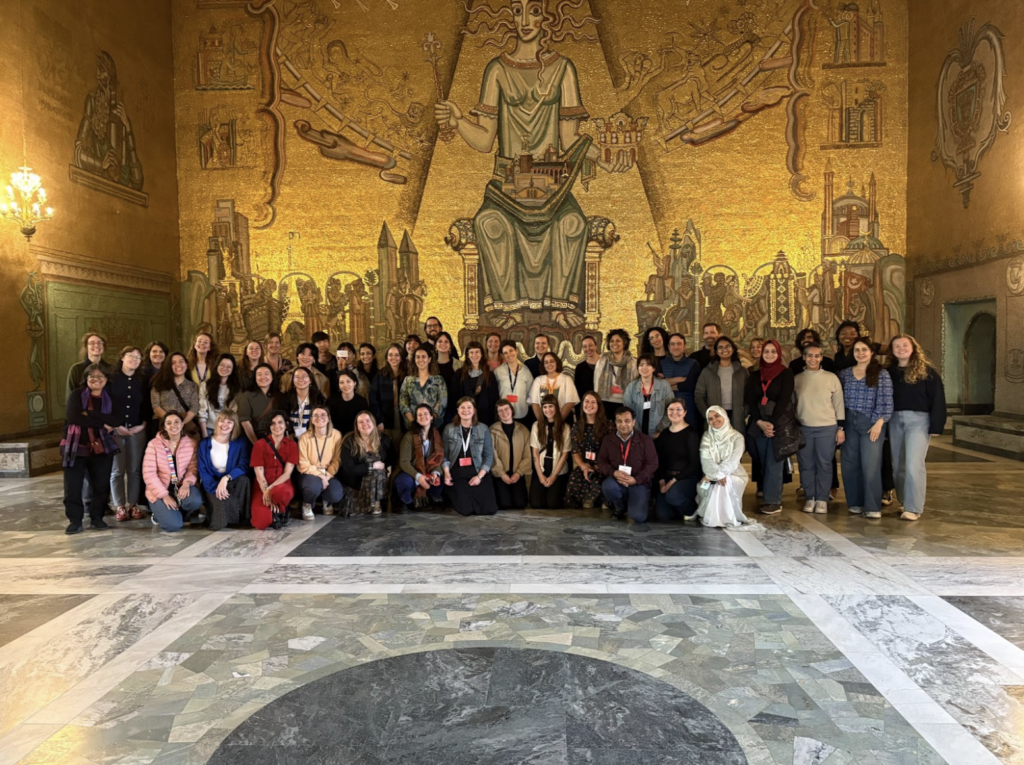
The Digital Futures FemTech and Feminist Tech focus period was organised by Madeline Balaam, KTH, Airi Lampinen, SU, Marianela Ciolfi Felice, KTH, Amir Hossein Payberah, KTH, Alejandra Gómez Ortega, SU, Nadia Campo Woytuk, KTH, Joo Young Park, KTH, Anupriya Tuli, KTH, Rob Comber KTH, and Hannah Johnson, KTH.

